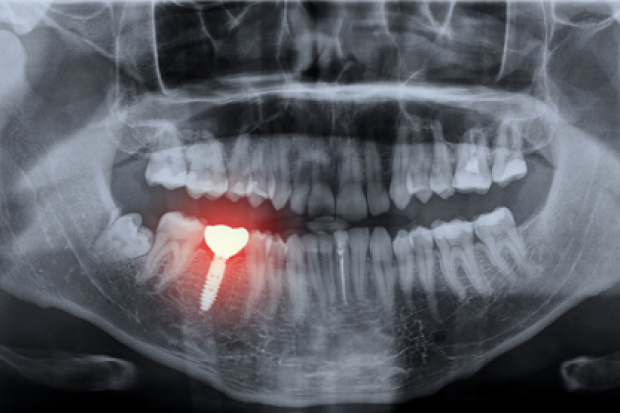A CT scan is a Computerised Tomography scan. Using a scanner, it sends out numerous X-ray beams from different angles at the same time to capture the images. CT imaging is considered one of the best and fastest tools for examining the body because it can provide cross-sectional views of the body and highly detailed images. It is similar to an X-ray. An X-ray produces a 2D image of bone, whilst a CBCT scan provides a detailed three-dimensional image of bone. 3D dental CBCT scans enable dentists to accurately plan treatment.
3D dental CBCT scans are essential for the accurate placement of dental transplants. CBCT scans measure the depth, width, and density of the jaw bone, and more importantly the depth, width, and density of nerve canals and sinus cavities in a 3D view to an accuracy of 0.1 mm.
Replacing teeth with dental implant treatment has traditionally been associated with long periods of reputation and high costs, but with our state-of-the-art equipment, the time and the cost can be dramatically reduced.
CT scans are non-invasive, completely painless, and require no recovery time afterward.
- Because they use more X-rays than a normal X-ray, a CT scan is only carried out when necessary. However, the amount of radiation is very small and unlikely to cause any long-term harm.
- Pregnant women are only given a CT scan if the benefit of the scan outweighs the risk to the baby.
How to prepare for a CT scan
This procedure requires little to no special preparation.
- Tell your Radiographer, if there’s a possibility you are pregnant
- Leave jewellery at home.
Your scan will take about 15 minutes
